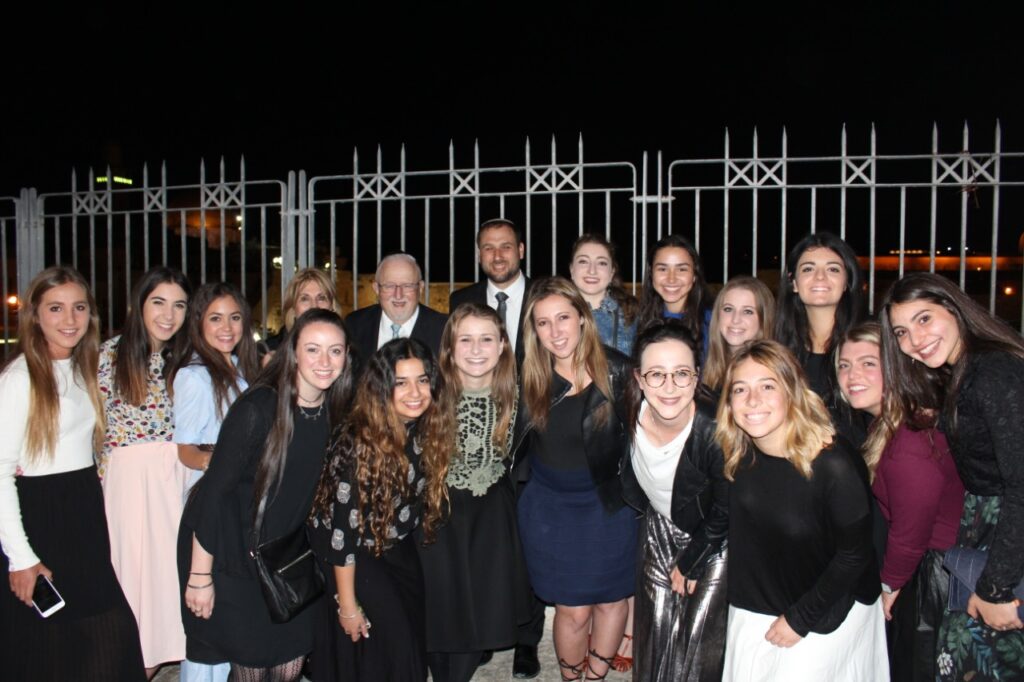Australia/Israel Review
The Last Word: South Africa to Australia and back again
May 28, 2025 | Rabbi Ralph Genende

My wife and I left a South Africa torn by racism and wracked by the injustices of apartheid. Poverty and suffering were endemic.
And yet this was the country that gave my parents refuge from the horrendous hostility and devastation of the Holocaust. This was the land that allowed the “Litvaks”, Lithuanian Jews, to recreate the tight-knit communities they had left behind. And it was here I learned the Torah from singular scholars, some from the old country itself.
I have returned many times over the years and spoken to local Jewish congregations. Most often, I was the visitor from the thriving and creative Australian community sharing stories of our proud achievements in this accepting and lucky land, a proud example of multicultural achievement and multifaith harmony, in contrast to the volatility and violent reality of post-apartheid South Africa.
Yet on this visit, nothing was quite the same. I had changed, Australia had changed and South Africa was different.
The world shifted on October 7, 2023. There was a tectonic transformation in Jewish consciousness. We are, in the Talmudic phrase, in an upside-down world.
The South African Jewish community wanted only to hear about the antisemitism in our land down under, incredulous about our near-top ranking in the planetary anti-Jewish Olympiad. For some, there was a barely concealed schadenfreude; for others, a genuine fear for their families, who had migrated to Australia – they had left their homes to escape danger! For yet others, this was just confirmation that hostility towards Jews and Israel was as universal as the wild grass, as deeply rooted as the African baobab tree. Australia is no longer the same place, but neither is South Africa.
For the first time in many years, there seemed to be a spirit of optimism in the Jewish community. In the Jewish area of Johannesburg – or Joburg, as we call it – still protected by its own armed security services, there was a vibrancy and confidence.
Yes, there still are the stupendously high walls and electrified fences and plans for even more security arrangements for these gated communities. There are also desperate beggars on so many street corners and obvious, debilitating poverty and staggering unemployment and crime in this country of deep political corruption and incompetence.
Despite the awareness that beyond the high walls there is gross hunger and heartache, there remains a belief in the future of South Africa and the vitality of this small community – which was once so much larger.
Highly successful and determined Jewish businesspeople contribute not only to the economy, but also to the social welfare of the country, alongside Jewish educators and artists, social activists, doctors and lawyers. And then there are the growing religious communities, with beautiful new synagogues popping up alongside a rich variety of kosher restaurants and delis.
There was a sense of having come through the worst and hope that the country’s new coalition government and a chastened African National Congress (ANC) would, in time, temper its vile anti-Israel rhetoric and egregious actions, including the absurd genocide case against Israel at the International Court of Justice. There is also a strong belief that most ordinary citizens of South Africa are not intrinsically antisemitic, and that their Christian beliefs make them more sympathetic to Israel than their failing ANC leadership.
While South African universities are not much different from ours in their anti-Israel stances, they didn’t experience campus occupations, and they don’t have weekly anti-Zionist protests or marches.
To be sure, there is the same universal vulgar and vituperative antisemitism coming from both political extremes. The May 1 cover of the SA Jewish Report featured the first antisemitism hate speech case at the Equality Court in Cape Town against a local comedian for “depraved videos and utterances” against Jews.
I left South Africa more optimistic about its future – despite power blackouts and the huge potholes in Joburg’s streets. This beloved country remains not just a place to cry or sigh for – it’s also a place to fly to and barrack for.






